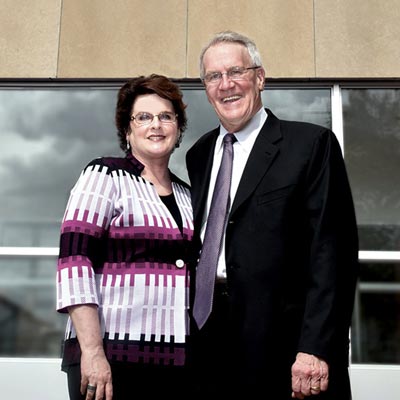 Dana and David Dornsife
Dana and David Dornsife
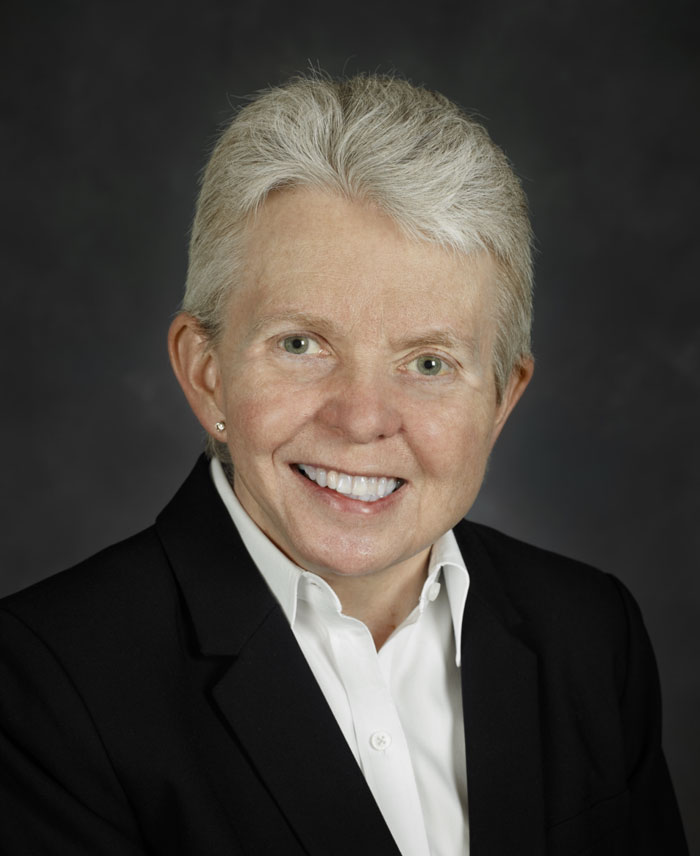 Margaret C. “Peggy” Burns
Margaret C. “Peggy” Burns
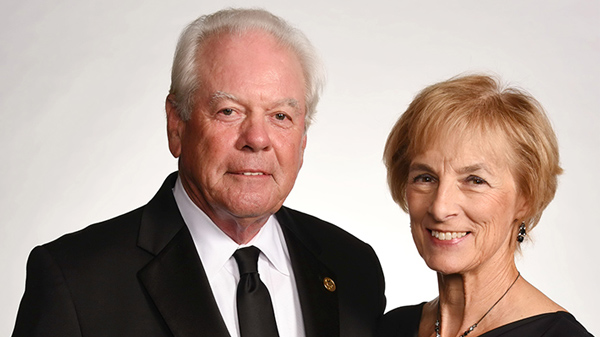 John and Jinnie Chapel
John and Jinnie Chapel
Financial Strength, Generous Support
We begin by ensuring a firm financial footing for our missions of teaching, research and service. When the pandemic forced campus closures, we took difficult steps to reduce spending — some of which meant sacrifice from faculty and professional staff to whom I am profoundly grateful. The result: a balanced budget for the fiscal year and a cautiously positive outlook going forward. In July, the financial markets gave us a vote of confidence with our $256.4 million bond sale to enhance the quality of academic and student life, secure our investment in St. Christopher's Hospital for Children, and benefit the University endowment. We can be equally proud of our stewardship of the endowment, which continued its steady 8.1 percent annual return in a turbulent financial period and just surpassed $900 million.
Looking to our own community, I'm enormously grateful for the support and engagement from more than 10,500 Drexel alumni who joined thousands of others in volunteering, attending events or making a generous gift. The Campaign for Drexel has grown to $680 million, as we look forward to closing out the $750 campaign this academic year. That generosity will allow us to invest in making a Drexel education accessible to more students regardless of their family income; in new modes of teaching and learning; pioneering research; and in active engagement by students and faculty in real-world problem solving, both in our Philadelphia home and around the world. Another $250,000 in special funds was raised specifically to help Drexel students navigate the pandemic. And for this academic year in total, the University awarded more than $318 million in grant and scholarship aid to undergraduate students.
This year, leadership support has come from so many Drexel supporters — paramount among them, Drexelalumna Dana Dornsife and her husband David. Their most recent gift, for $9 million, will put the Dornsife School of Public Health in the forefront of research on racial inequality and health disparities through the creation of a new Center on Racism and Health. In addition, it will enhance our ability to recruit and retain faculty experts on racial inequities in health, while also endowing the deanship for public health. I’m so humbled and gratified that Drexel enjoys continued support from the Dornsifes, who truly embody the spirit of The Campaign for Drexel as it seeks to catalyze a new era of impact through investments in Drexel’s people and programs. With this gift, Dana and David stand as the most generous benefactors in Drexel’s history.
Other notable support this year came from Margaret C. “Peggy” Burns ’79, who endowed the Margaret C. Burns Chair in Engineering to help Drexel recognize faculty, specifically those who will support women, minorities and members of the LGBTQ community as teachers and mentors. And Drexel Trustee and longtime supporter R. John Chapel Jr ’67, and his wife, Jinnie, committed $1 million to establish the Chapel Leadership Development Program in the LeBow College of Business.
First-Year Class
From this position of strength, we welcomed the newest members of the Drexel community — an accomplished, creative and diverse group of nearly 2,350 first-year students, as well as 560 new transfer students. One in four of our first-year students are first-generation college students and they hail from 40 states and 53 countries. I’m proud that students of this caliber and commitment have chosen Drexel and it’s already clear that this class is going to be an extraordinary addition to our community.
These new undergraduates join a vibrant and engaged student body involved in hundreds of student organizations supported virtually this year by Student Life. Preparing for the new term, our first-year students began to build bonds even before classes start by attending nearly 300 virtual programs — including more than 100 hosted by fellow students. These new undergraduates also benefited from the efforts of more than 200 Drexel graduate students who stepped up as remote course facilitators to support faculty in the transition to remote learning.
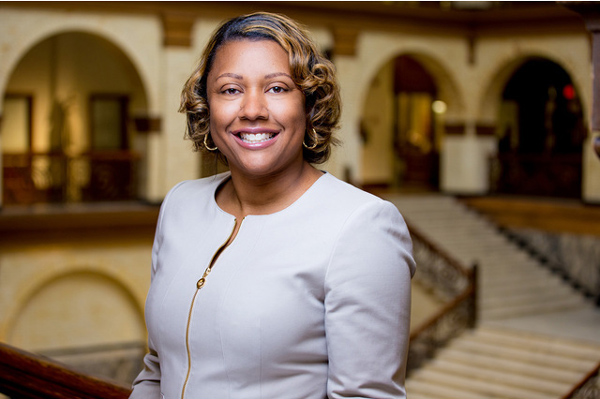 Kim Gholston leads the Anti-Racism Task Force with three co-chairs.
Kim Gholston leads the Anti-Racism Task Force with three co-chairs.
A more diverse, inclusive Drexel
Each of these new students, and the thousands already here, expect to be judged on their own merits. We prize our diversity as a community and are determined to enhance it. That's why I am deeply committed to furthering an anti-racist community at Drexel where all students, faculty and professional staff know they are seen for their individual skills and talents, not judged through the lens of preconceived perceptions or unconscious biases.
Our work toward that goal is a key focus this academic year and beyond. A centerpiece of this effort was the creation of an Anti-Racism Task Force, led by our newly appointed Chief Diversity Officer Kim Gholston, along with the launch of our Center for Black Culture, as well as an external review of campus policing. I'm inspired by how the Drexel community has embraced this mission and look forward to taking substantive action based on the Task Force recommendations in the year ahead.
Civic Engagement, Active Citizens
Drexel's commitment to civic engagement in Philadelphia not only reflects our mission and values, it is a model for the kind of active, experiential teaching and learning that is a key focus of our strategic plan. While the pandemic continues, we are putting a strong emphasis on addressing the immediate needs of the West Philadelphia communities surrounding the University City campus. Our Promise Neighborhood education initiative has led the way in efforts that range from helping to get the word out about meal distribution sites, purchasing and handing out masks to promoting health-tip posters created by the Dornsife School of Public Health. The front porch of one Drexel employee's home in the neighborhood even became an informal center for local civic leaders and organizations to pick up books, toys, masks, cleaning supplies, and other needed items.
The Dornsife Center for Neighborhood Partnerships has offered online dance and cooking classes and its monthly community dinner to-go, working with a local restaurant, while the Stephen and Sandra Sheller 11th Street Family Health Services provided access to critically needed COVID-19 testing, in addition to a full range of care. And at the Lindy Center for Civic Engagement, Drexel students were connected to opportunities to engage with and support the local community through remote service placements, intentional learning communities, and limited in-person engagement.
New Growth, Opportunities
Our efforts to enliven our campus and community this year again reached beyond the classroom and lab. Visible progress was seen in and around the University City campus, with the new home for the Powel Elementary / Science Leadership Academy Middle School at 36th and Warren streets moving toward a spring opening if public health conditions allow. Our commitment to building this university-assisted public school is more than an investment in the families and schoolchildren of our community. It’s one of the many steps we hope to take to ensure greater educational opportunity and diversity in Philadelphia’s future. Also underway at uCity Square is the new academic tower that will house the College of Nursing and Health Professions, as well as some divisions of the College of Medicine, all done in partnership with developer Wexford Science and Technology. Meanwhile, our development partner at Schuylkill Yards, Brandywine Realty Trust, is preparing to break ground on two research and commercial buildings across from Drexel Square at 30th and Market streets that will provide life sciences companies like Spark Therapeutics with significant opportunities to grow; and co-op and employment opportunities for Drexel students, faculty, alumni, and residents of the surrounding neighborhoods in University City and beyond. Both uCity Square and Schuylkill Yards are becoming exciting settings for realizing the promise of applying our science and use-inspired research, presaging Drexel’s growth as a top research institution.
Pioneering Research
From the earliest days of the pandemic, Drexel researchers took on the complex biomedical and public health challenges of COVID-19, launching a broad range of projects including inquiries into mental health and substance abuse during the pandemic, manufacturing of face masks and shields, and the search for therapeutics and vaccines. This work led to more than $1.8 million in new research awards from sponsors like the Gates Foundation, National Institutes of Health and the Commonwealth of Pennsylvania, with others in the pipeline. Drexel so far has produced six inventions, one pending clinical trial, and more than 30,000 individual pieces of personal protective equipment delivered to more than two dozen community partners in Philadelphia.
In addition, we launched a rapid response fund for racial equity research, focused on a range of fields across the University, including the relationship between race and public health, the impact of policing on health, and disparities in education. Other projects will explore the impact of racism, racial exclusion and racial inequity on Drexel students themselves. All of the projects will contribute to our understanding of the negative effects of structural racism and also help to actively create anti-racist responses.
The reach of Drexel’s research enterprise is vast and often use-inspired, as in the A.J. Drexel Autism Institute’s exploration of ways to safeguard individuals on the spectrum who come into contact with law enforcement. Or there’s our new alliance with Children’s Hospital of Philadelphia to further medical research, which will create clearer pathways for joint research activities among researchers at both institutions, while adding training opportunities for Drexel doctoral and master’s students at CHOP.
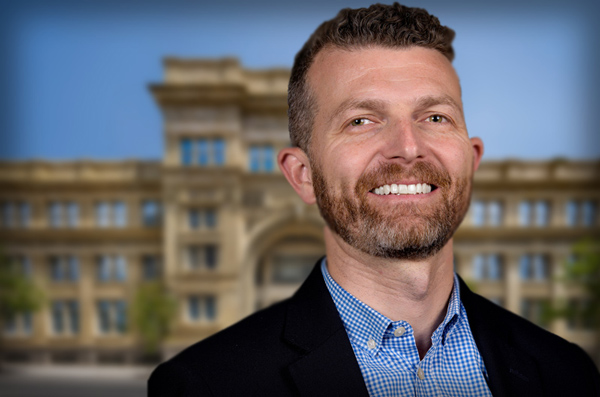 Jason Schupbach
Jason Schupbach
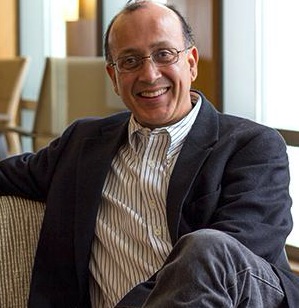 Vibhas Madan
Vibhas Madan
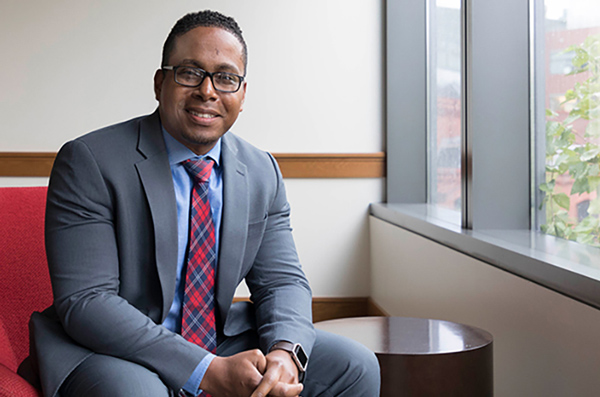 Brian Ellis
Brian Ellis
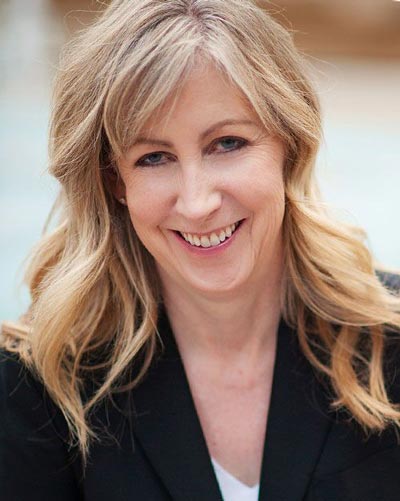 Karen Restifo
Karen Restifo
New Leadership
Paul E. Jensen began his first full academic year as Nina Henderson Provost, having served as interim provost since late 2019, and we welcomed a new dean amid other leadership appointments. Jason S. Schupbach took over as dean of the Antoinette Westphal College of Media Arts & Design, joining us from The Design School at Arizona State University. At the Bennett S. LeBow College of Business, Vibhas Madan, PhD, was named dean and R. John Chapel, Jr. Dean's Chair, following his tenure as interim dean since late last year.
Brian Ellis, PhD, of the LeBow College of Business, now leads the Goodwin College of Professional Studies as its new executive director. As LeBow's associate dean for program administration, Ellis created the award-winning LeBow BRIDGE, an academic enrichment program for underrepresented minority students.
At the Office of Equality and Diversity, Patience Ajoff-Foster was named the new executive director of Diversity and Inclusive Culture and now serves an integral role in Drexel's strategy to improve diversity and inclusion results, develop the link between diversity and excellence with accountability measures, and grow and sustain inclusion efforts. At the newly established Center for Black Culture, Shardé Johnson moved from Student Life to serve as director.
College of Medicine
As it does each August, the College of Medicine held its annual White Coat Ceremony to herald 270 students' journey to becoming physicians. Although the event was remote, it was a reminder of the hallowed traditions upheld at Drexel — and yet another sign of hope for the future. The College's bright outlook includes the approaching launch of its additional location in West Reading in collaboration with Tower Health, where 40 students will begin training in a new state-of-the-art medical school building this coming summer. Guiding our work there will be Karen Restifo, MD, JD, who was named the inaugural regional vice dean, joining Drexel from the Keck School of Medicine of the University of Southern California. Meanwhile, the University's joint ownership with Tower Health of St. Christopher's Hospital continued to mature, with the naming of CEO Donald Mueller, a health care executive with an impressive track record of fostering growth and excellence in pediatric clinical care.
Academy Visits Resume, Strategic Plan Advances
At the Academy of Natural Sciences of Drexel University, where we both support the education of so many visitors while elevating Drexel’s research and teaching in the environmental sciences, we implemented comprehensive protocols to ensure museum visitors and professional staff found a welcoming and safe environment. Museum hours were adjusted from daily to Fridays and weekends, and in September we opened a gallery with the fascinating "Wildlife Photographer of the Year" exhibit. Along with these efforts to reconnect with visitors, the Academy is moving ahead on its new strategic plan that positions the nation's oldest natural science museum as a "force for nature" and strengthens its role at Drexel. In addition, the Academy launched its “Small Actions Spark Big Changes” initiative, which guides our community in a conversation each month about how everyday choices can affect the health of our environment.
Athletics
We can also take pride in the achievements of the women and men of Drexel Athletics, while sharing their disappointment in not being able to compete this past spring and fall. Thanks to the hard work and tenacity of a great many individuals, basketball returned in late November with the men’s and women’s 2020-21 season getting underway. Both teams’ players showed incredible perseverance in the face of COVID-19. Before the shutdown, the wrestling program repeated as the nation's top academic team, while Ebed Jarrell, Parker Kropman and Michael O'Malley received 2020 Division I Scholar All-American honors from the National Wrestling Coaches Association. Earlier, Amy Mallon took over for Denise Dillon as head women's basketball coach. The squash season finished strong, including victories over Penn for the seventh-ranked women, and Columbia and Yale for the eighth-ranked men. While the pandemic has cleared the schedule for most intercollegiate sports, Drexel senior golfer Connor Schmidt last month repeated as the Western Pennsylvania Golf Association Amateur champion.
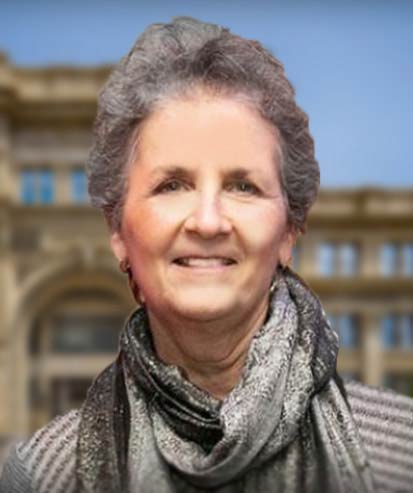 Marla Gold
Marla Gold
Rising to the Challenge
Lastly, it would not be possible to cope during this difficult pandemic year without the support, dedication and diligence of so many individuals and organizations, including all those who safeguarded our campuses during our lengthy absence. From Drexel Facilities, to the IT department and Drexel Public Safety, I’m profoundly grateful for the commitment and indomitable spirit of these women and men. In addition, the understanding and cooperation received from corporate partners like American Campus Communities and Aramark greatly eased the burden for students who could no longer occupy their off-campus residences or utilize meal plans.
And then, there was the painstaking work of the Fall 2020 Covid-19 Task Force, which mapped out our strategy for eventually returning to campus. The successor group, our Return Oversight Committee — headed with great care and expertise by Marla Gold, MD — has been tireless in ensuring that our community remains as safe as possible throughout this public health crisis.
Looking Forward
Any annual report by an institution as large and diverse as Drexel can only offer a snapshot of what we have been doing — even in the midst of a historic public health challenge — to keep the University moving forward. Now, with the prospect of COVID-19 vaccines and therapeutics, we can all look ahead with a real sense of hope and renewal. The year ahead will be a pivotal one for Drexel as we move from planning processes that have engaged so many members of our community to implementation of a wide range of strategies that will position the University to continue to be an innovative leader in higher education. Through grit, determination and ingenuity, I have no doubt that our entire community will continue to do incredible things — none more important than working to see that Drexel is living up to the vision of innovation, inclusive learning and opportunity at the core of our founding and central to our mission today.
With gratitude,

John Fry
President